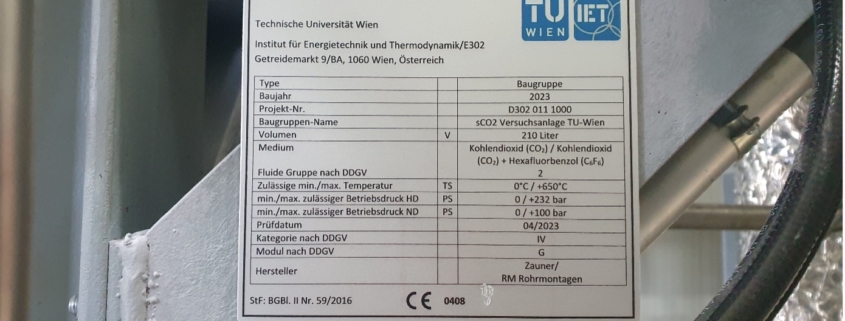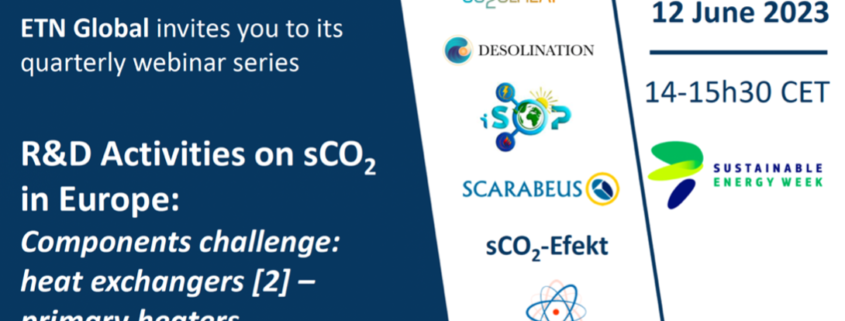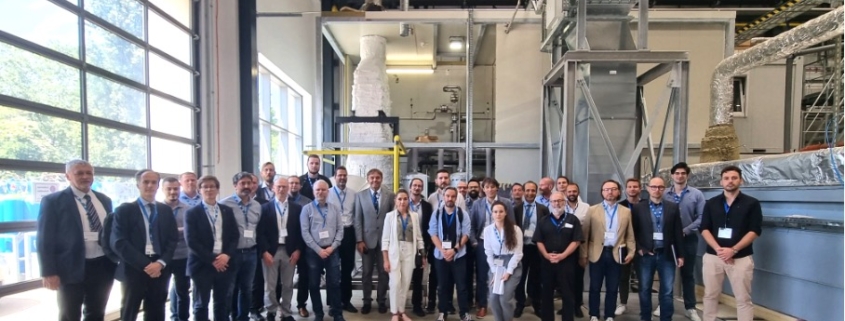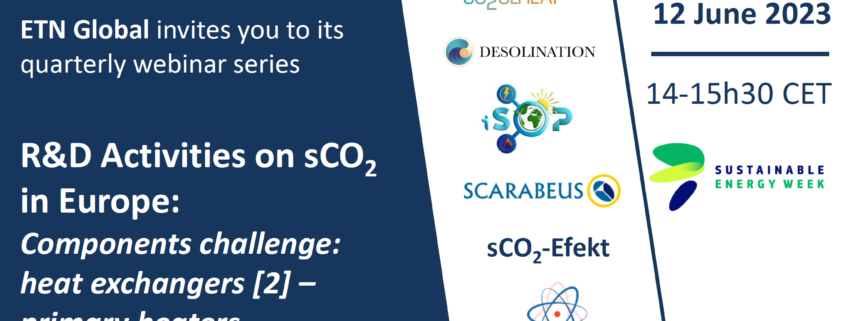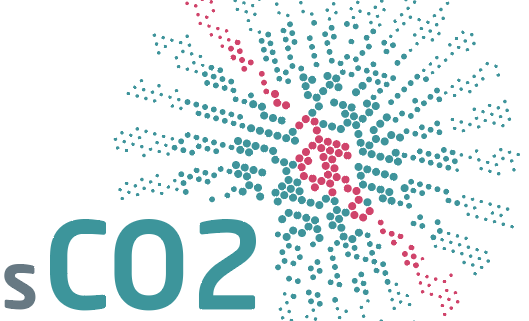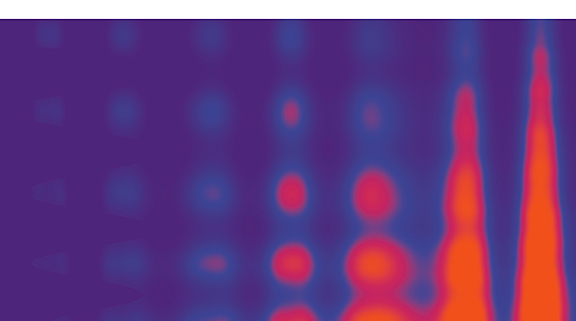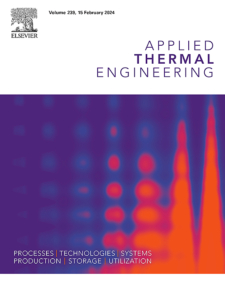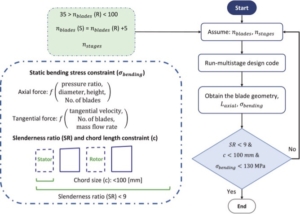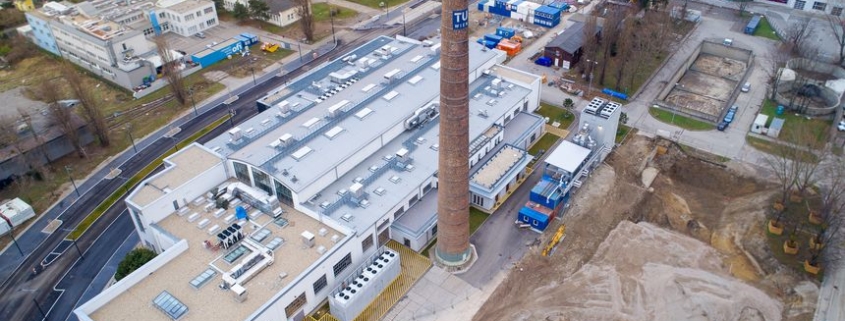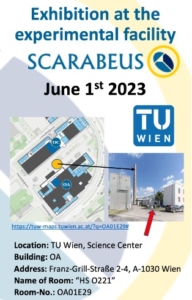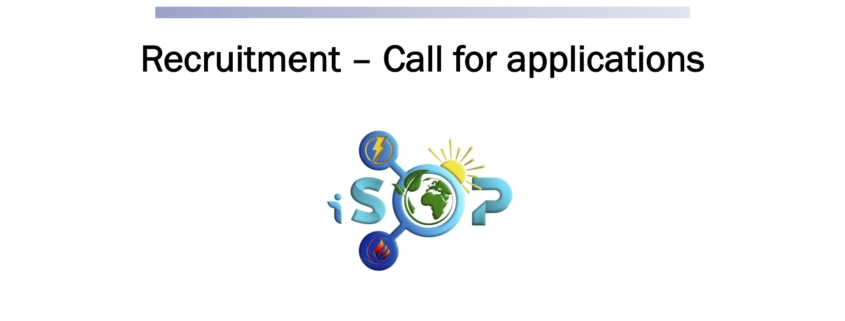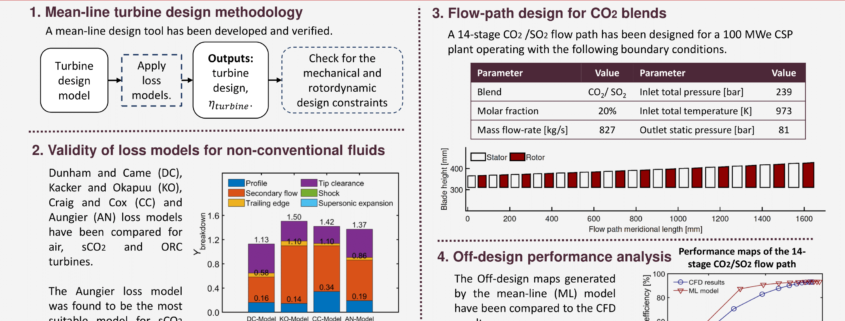As SCARABEUS heads towards the last months of the project, and research outcomes are being disseminated amongst different stakeholders, the younger researchers in the project are also achieving their scientific objectives.
This last week saw Salma Salah, a young researcher at City, University of London, successfully pass her PhD Viva. Within WP3, Salma has worked very hard on the development of the SCARABEUS turbine, in collaboration with Baker-Hughes and interacting with University of Seville to ensure seamless integration with the work carried out in WP5. Let’s have Salma presenting this with her own words:
“I have been working during the last four years on a PhD research project entitled “the design and analysis of supercritical carbon dioxide axial turbines”. This research is a part of the SACARABEUS project which aims to demonstrate the application of CO2 blends for Concentrated Solar Power (CSP) plants to enable cycle efficiencies greater than 50%, and hence enhance competitiveness of CSP technologies in the energy market. Considering that the turbine efficiency significantly affects the overall plant performance, the overall aim of my research is to develop design and optimisation tools for a 100 MWe scale sCO2 multi-stage axial turbine design for concentrated solar power cycles.
Turbine design is a multi-stage process that starts with preliminary aerodynamic design and optimisation using a combination of one-dimensional mean-line design suitable loss models. These models are used to quantify the energy losses that the working fluid experiences during the expansion in the blade rows, and hence they can predict overall turbine performance. To develop a turbine design operating with CO2 blends that stands from a practical design, other considerations should be considered, such as mechanical and rotor-dynamic considerations, to ensure a turbine design withstands the applied stresses and can operate safely under the different operation conditions. Therefore, the scope of this research focused on exploring the existing design methodologies to produce a mean line design for a multi-stage axial turbine operating with CO2 blends and to investigate the validity of the loss models for non-conventional working fluids (such as CO2 and organic fluids). Within this research I worked on developing a mean-line design tool that can optimise the aerodynamic turbine performance alongside complying with rotordynamic and mechanical design criteria.
Additionally, multiple design loss models have been integrated for turbines operating with these non-conventional working fluids. Using the developed tool, the loss models have been computed for air, sCO2 and ORC turbines.
Ultimately, a 14-stage CO2/SO2 flow path has been designed for a 100 MW CSP plant and the financial feasibility of the turbine flow path has been investigated to ensure that the design stands from an economic point.”
The SCARABEUS team would like to congratulate Salma Salah on this major step in her scientific career, and also the supervisors Prof. Abdulnaser Sayma (City, University of London) and Dr. Martin White (University of Sussex) and the entire team at City, University of London. Best of luck for your future professional development Salma!
A copy of Dr. Salah’s thesis can be downloaded from the repository at City, University of London: https://openaccess.city.ac.uk/id/eprint/30364/

